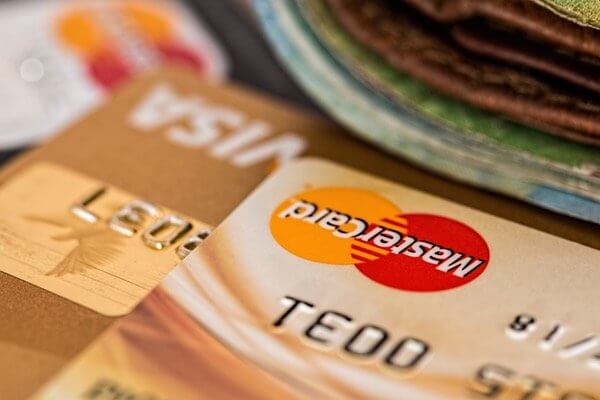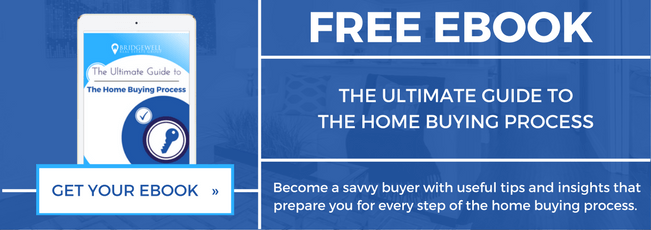Tips to Help You Save Up for Your First Downpayment
9 Tried-and-True Ways to Help you Save Up
Tips to help you save money for a down payment
One of the biggest challenges that first time home buyers have is saving up for a down payment. Oftentimes, their rent is exactly what it would be if they had a mortgage, given the down payment factor is taken out. It can be frustrating feeling like the market is going up so fast, and feeling like you’re never going to be able to afford a home. With that being said, here are 9 tried-and-true ways to save money for a down payment to buy a house or condo, so that you can move closer towards ownership. No landlords for you! Read on…
-
Get creative with “found money”
Found money is the money that you don’t really think about as your down payment but really can help to add up. Anything from your bonus at work, to birthday money, Christmas money, to bottle returns can go that little extra way to add towards a down payment. Max out your CPP & EI contributions upon that magical date and take out your vacation pay if you haven’t used it already. Pretend like you never had this money in the first place – deposit cheques immediately – and think about having a portion of your pay cheque automatically go in to a separate savings account.
-
Create a separate bank account
Open a bank account that is specifically for your down payment savings, and lock it so you can’t touch it. A tax free savings account (TFSA) is a great way to do this. The money you earn on this account won’t be taxed (up to your limit), so any money you earn in this account is yours. Talk to a financial advisor at your bank and discuss where you should invest it. If you’re thinking about investing in high risk stocks, you risk potentially losing your hard earned money, although on the flip side you may be able to make a quick flip. When it comes to a down payment, typically a safer option like a GIC, RRSP, or TFSA is your best bet for guaranteed returns. Your interest rate won’t be very high, but at least you know the amount you save won’t decrease. It’s better to be safe than sorry.
-
Look for cheaper ways to do things (AKA the latte factor).
Do you eat out a lot? Try to take up cooking at home. Do you watch a lot of movies? Try renting, streaming, or get Netflix instead. Do you drink a lot of coffee? Start making drip coffee at home. Do you buy a lot of new books? Try the library. Do you buy a lot of new clothes? Try to stick with your current wardrobe. You may not think that $5 every day (or $2, $4 whatever) means a lot. But if you factor in 20/30 days out of the month then that’s roughly $100 a month in lattes that you maybe could have put towards your down payment. Every little bit helps. Prioritize your wants and needs, and figure out what you can live without in order to direct your money in to your down payment savings fund.
-
Utilize the first time home buyer incentive
The first time home buyer incentive is a shared equity mortgage (loan) offered by the government, in which they invest in the property with you. The incentive is not interest bearing and does not require on-going payments, but you do have to repay the loan within a 25 year period of when sold, whichever comes first.
This incentive is a loan, and is not to be confused with the BC HOME Partnership which was a down payment matching scheme.
A shared equity mortgage is where the government shares in the upside and downside of the property value. Therefore, the loan amount is calculated based on fair market value at the time of repayment, and is either 5% or 10% depending on whether your purchase was a resale or presale property.
To read more info on this refer to our blog: First Time Home Buyer Incentive
-
Pay off your credit card debts
Visa charges 19.99% in most cases for interest. That is money that you could be putting towards your down payment, so do your best to pay off your credit cards to as low as you can. You can also think about asking your financial advisor for a line of credit. You could use the line of credit to pay off your credit card debt, and pay a lower rate than 19.99% (estimate for about 8-9%). If you can’t qualify, ask your financial advisor or mortgage broker what other options you have, or any advice to minimize your debt. By minimizing your debt and making regular payments, this will also help to increase your credit score which will help when you’re ready to get pre-approved for a mortgage.

-
Set up an RRSP, save up tax free, receive the tax benefits, and take out the money for your down payment when you’re ready to purchase without penalty.
If you haven’t opened up a RRSP account yet, this may be a good way to reduce your taxes come spring. For example, if you make $30,000K a year, and your RRSP has $5000, this means that your new taxable income is $25,000 rather than $30,000. The extra money you save from your taxes could go to your down payment. What’s more, the federal government Home Buyer’s Plan is an awesome way to help you finance your down payment. You can use up to $25,000 of your RRSP savings ($50,000 for a couple), to purchase a home, as long as the money has been deposited in your account for at least 90 days. Consider taking the money you’ve already saved that is not currently in an RRSP account, like $25,000 and flipping it through an RRSP for a short term period like 90 days prior to closing. By doing this, you will be eligible for a tax refund based on your contribution amount, which can help to add to your down payment or pay closing costs. You’ll receive your tax refund in the spring season, so this strategy will work best if you invest in your RRSP before the deadline (usually around November) so that you can receive your money back around April.
-
RRSP matching programs at your work
If your work has a RRSP matching program, consider signing up for it and having them match your RRSP contributions. On top of the benefits you already have by opening up an RRSP account, you’ll also be receiving extra money that you would’ve had previously that could be used for a down payment in the future!
-
Go to the good ol’ bank of mom & dad (or grandma and grandpa)
If you’re fortunate enough to have parents that have saved and put money aside, or just have a little extra cash, then this option can be a lifesaver. Your parents may have already thought about passing down some money for you when you make your first home purchase, and if you bring up that you’re thinking of purchasing they might bring it up. All parents remember how cheap it used to be to buy a house, and they understand that times have changed and it’s not so easy to be a first time home buyer anymore. Parental help can be the difference between you buying the condo of your dreams downtown and a 400 sqft. studio in the suburbs. Keep in mind, these typically come with strings attached, like them approving the purchase, giving unsolicited advice and/or guilt trips for years to come. They’re your parents… they can’t help it.
-
Use a financial tracking app and start practicing mortgage payments.
A great app that I’ve used before is Mint.com, it helps to make sure you’re aware of your spending, savings, and how you can decrease your spending. If you’re currently living with your parents, talk to a mortgage broker or your bank, determine how much your hypothetical mortgage payment would be with maintenances/taxes, etc., and start banking the money you’d otherwise be paying in rent. Even if you’re already renting, calculate the difference between your rent and your future mortgage payment (if applicable) and save the extras. It’ll get you in the mindset of already owning a home, and you’ll already be used to the payments when you actually do purchase so it won’t feel overwhelming.
——
We hope that these 9 tips for saving up for a down payment help and motivate you towards your goals. Although saving up money for a down payment isn’t necessarily fun, it is absolutely fundamental in your path to home ownership. If you’re a first time home buyer in Greater Vancouver, the sooner you start saving for a home, the better off you’ll be. For more information on minimum down payment rules in BC and more, check out our blog post here: Down Payment 101
Looking to buy a home in the near future? Call us or text us at (604)-319-0200 for a walk through of the process or email [email protected] to start a conversation.







